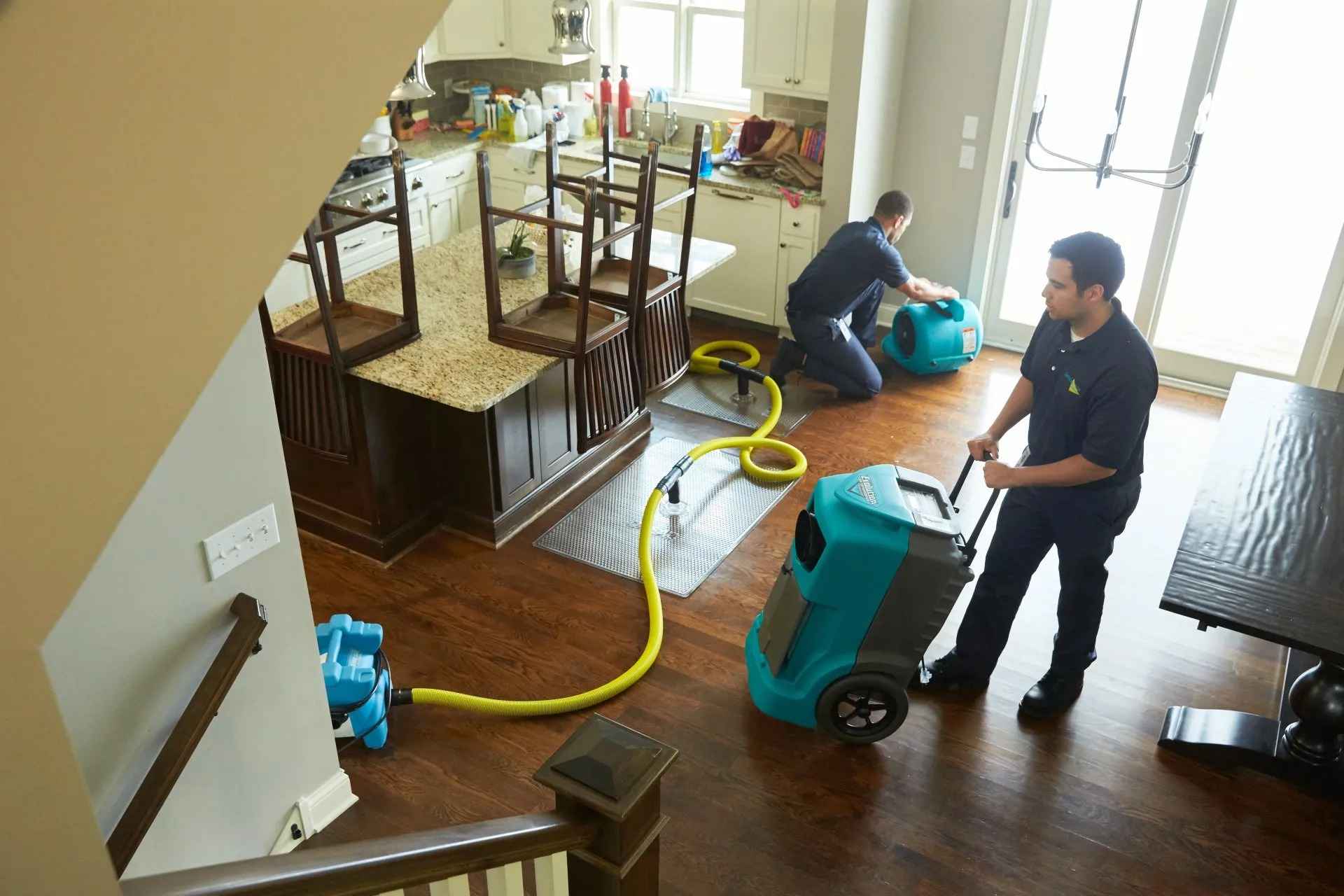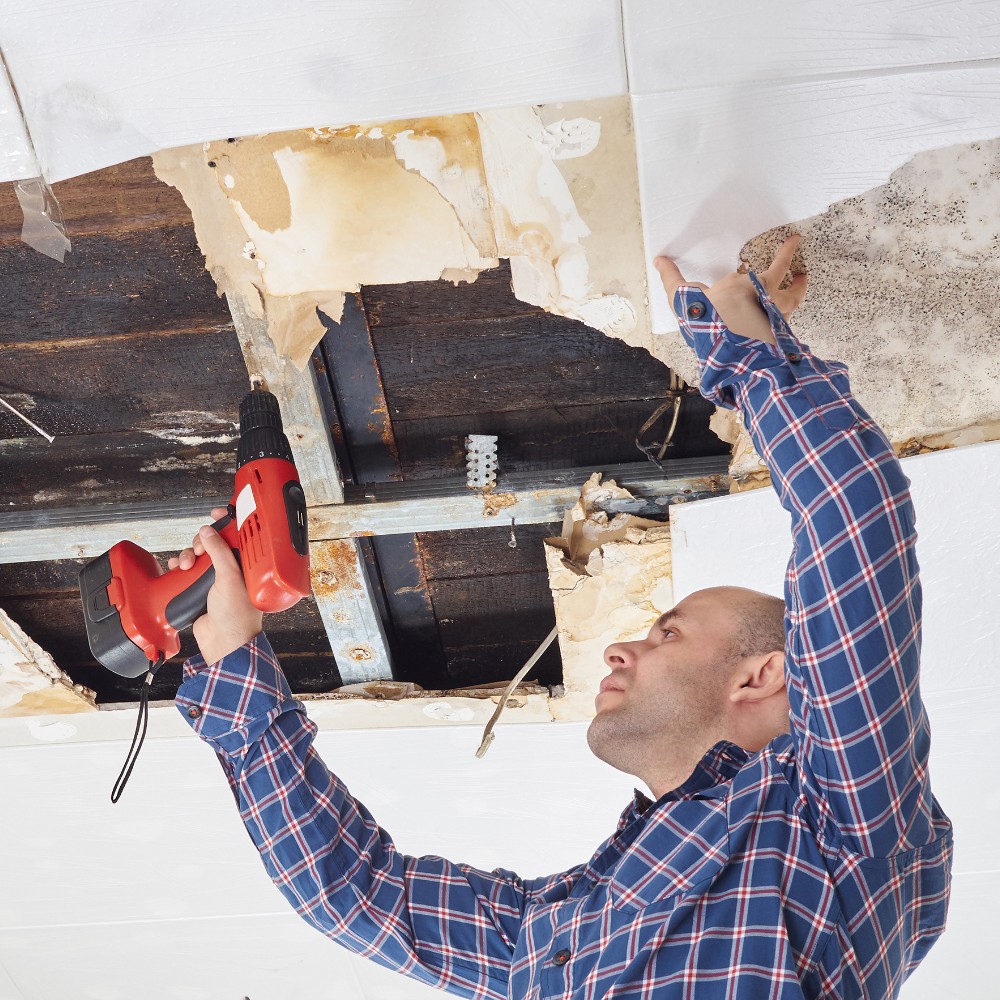Why professional Water Damage Restoration matters after water intrusion
Wiki Article
Leading Tips for Effective Water Damage Restoration: Protect Your Home Today
Water damage can strike suddenly, causing significant disruption and prospective threats. Efficient restoration needs an organized technique to decrease more harm. From examining the damage to carrying out preventative procedures, each action plays an important duty in securing residential property. Recognizing these methods can make all the distinction in the after-effects of a water-related situation. What important actions should be focused on to guarantee complete security?Analyze the Damage Promptly

Shut down the Water Supply
Shutting down the supply of water is an important step in avoiding additional damage throughout a water-related incident. When a leakage or flood takes place, immediate action is essential to decrease the degree of the damage. Situating the major water shut-off shutoff should be a priority. This valve is usually located near the water meter or where the water line goes into the property. As soon as situated, transforming the shutoff clockwise will certainly stop the flow of water. In situations where the main valve is unattainable, private shut-off valves for home appliances may also be used. Without delay closing off the water not only protects the home from extra injury yet also assists in the subsequent restoration process, making sure that recovery initiatives can begin without hold-up.Remove Excess Water Promptly
Removing excess water without delay is vital for decreasing damage and avoiding mold and mildew development in influenced locations. The longer water continues to be touching products such as insulation, wood, and drywall, the better the risk of architectural damage and the growth of mold. Home owners need to act rapidly to analyze the situation and utilize ideal tools, such as wet vacuum cleaners or pumps, to extract standing water effectively. If the quantity of water is significant, speaking to specialist restoration solutions might be needed, as they can supply specific tools and know-how. Additionally, removing furnishings and personal belongings from the damaged area can aid to decrease damage and facilitate the total restoration process. Prompt action not just shields property but additionally help in a smoother recovery trip.Dry Out the Affected Area
After eliminating excess water, it is important to dry the damaged area thoroughly. This includes removing any type of standing water and enhancing air circulation to help with evaporation. Effective drying out will assist avoid mold growth and more damage.
Eliminate Standing Water
Swiftly addressing standing water is vital for efficient water damage restoration. The existence of stationary water can cause more property damage and produce an environment favorable to mold and mildew growth. To reduce these risks, it is crucial to get rid of standing water as promptly as feasible (Water Damage Restoration). This process normally includes making use of completely submersible pumps, damp vacuums, or specialized removal tools. Specialists advise evaluating the depth and extent of the water before picking the proper technique for removal. Security safety measures need to also be taken, consisting of using safety equipment and ensuring electrical power is turned off in affected areas. Once the standing water is effectively removed, the drying process can start, additionally protecting the home from ongoing damageRise Air Circulation

Inspect for Mold Growth
Mold growth is a severe issue following water damage, as it can bring about wellness problems and architectural wear and tear. After any flooding or leakages, it is vital to perform an extensive assessment of the impacted locations. This consists of checking covert areas such as behind wall surfaces, under carpetings, and in basements or attic rooms where moisture may stick around. Signs of mold consist of a mildewy smell, staining on surface areas, or visible development. Residential or commercial property proprietors ought to make use of protective gear when inspecting, as mold and mildew spores can posture health risks. Flood Cleanup Services. If mold is discovered, it is vital to resolve it immediately, as delaying removal can aggravate the issue and boost the risk of severe health and wellness issues for passengers. Early intervention is vital to reliable mold administrationRepair and Bring Back Damaged Frameworks
When resolving water damage, it is vital to very first examine the architectural integrity of the impacted areas (Water Damage Restoration). This examination helps identify possible threats and educates the essential fixing techniques. Engaging specialist restoration solutions ensures that the restoration process is conducted securely and efficientlyAssess Structural Honesty First
Prior to starting any water damage restoration, it is necessary to assess the structural integrity of the damaged location. This examination aids determine any endangered elements, such as wall surfaces, structures, or beam of lights, which might posture security risks. Examining for signs of bending, splitting, or mold growth is vital, as these indicators can expose underlying damage that needs instant attention. Additionally, recognizing the level of the damage can lead restoration initiatives and figure out whether repair services are viable or if replacement is essential. It is essential to document findings completely, as this info can be beneficial for insurance coverage cases or future referral. Prioritizing architectural evaluation assurances that restoration initiatives continue safely and successfully, eventually safeguarding the building and its passengers.
Use Professional Restoration Services
Making use of specialist restoration solutions is important for efficiently fixing and restoring damaged structures after water events. These experts have the needed training, tools, and experience to mitigate and assess water damage thoroughly. They can determine covert issues, such as mold and mildew development and architectural weak points, that might not be promptly evident. Expert services also employ innovative drying strategies and tools, making sure that all dampness is eliminated to protect against more damage. Furthermore, they follow industry standards and guidelines, making certain that the restoration procedure is effective and secure. By engaging restoration experts, residential or commercial property proprietors can speed up recovery, decrease lasting damage, and inevitably protect their investment - Water Damage Restoration. This proactive approach is essential in maintaining the honesty and safety and security of afflicted structuresStop Future Water Damage
To effectively stop original site future water damage, homeowners have to adopt an aggressive strategy to upkeep and fixings. Normal evaluation of downspouts, roofings, and seamless gutters is vital; clogged seamless gutters can lead to water overflow and roofing leakages. In addition, examining for leaks in plumbing components and appliances can combat possible damage. House owners should additionally take into consideration installing sump pumps in cellars or low-lying areas to manage water accumulation. Sealing splits in structures and making sure correct drainage around the residential property are crucial steps in guarding versus water intrusion. Keeping humidity levels with dehumidifiers can protect against mold growth. By executing these precautionary actions, house owners can substantially decrease the threat of water damage and protect their residential property for the long term.When a water damage event takes place, it is vital to evaluate the damage immediately to mitigate further concerns. Eliminating excess water promptly is crucial for reducing damage and stopping mold growth in affected areas. Promptly attending to standing water is important for effective water damage restoration. The existence of stationary water can lead to additional home damage and develop an environment helpful to mold development. Prior to launching any type of water damage restoration, it is essential to evaluate the structural honesty of the affected area.
Report this wiki page